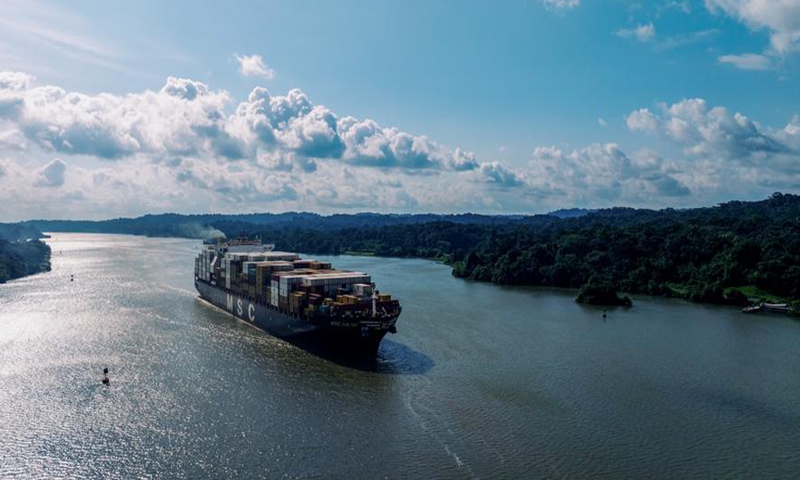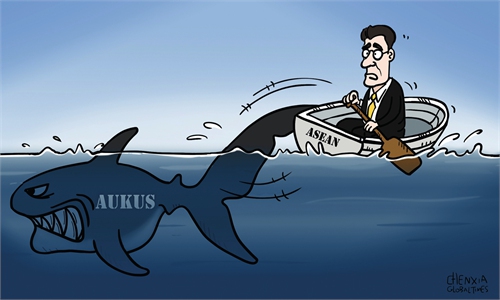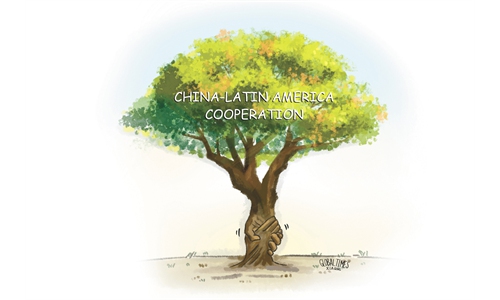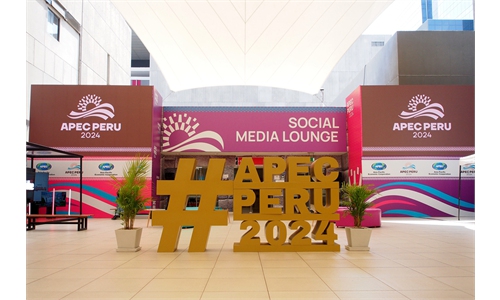Lessons from the Panama episode: In the third decade of 21st century, US should wake up from its backyard nostalgia

A drone photo shows a cargo vessel sailing on the Panama Canal near Panama City, Panama, Aug. 28, 2024. (Xinhua/Li Muzi)
On Sunday local time, Panamanian President José Molino issued a statement in a social media video post: Every square meter of the Panama Canal and its adjacent area belong to Panama and will remain so, and "the sovereignty and independence of our country are not negotiable." These remarks were in response to comments made by the US president-elect the day before, who called the Panama Canal "a VITAL National Asset for the United States," threatening to retake the canal, citing "exorbitant prices" on US ships. If the logic is that anyone who considers a canal vital can lay claim to it, what would be the point of international law, sovereignty, and territorial integrity in such a world?In 1977, the US and Panama signed the Panama Canal Treaty and Neutrality Treaty, which specified that the canal would be turned over to Panama on December 31, 1999, and all US military forces will be withdrawn from Panama and only Panama will operate and maintain military forces, defense sites, and military installations within its national territory.
This outcome was hard-won. The people of Panama fought a long and unyielding battle to overturn the unequal treaties of the past and reclaim sovereignty over the Canal Zone, Pan Deng, director of the Latin American and Caribbean Region Law Center at the China University of Political Science and Law, told the Global Times. He noted that Panamanians paid a steep price for this victory, which was deeply tied to their national sovereignty and national sentiment. Therefore, it is unthinkable for the US to reverse this outcome today.
Why Panama Canal? The Canal is not only a crucial passage for US ships to transport goods to other parts of the world, but it also ensures that the US Navy can quickly cross between the Atlantic and Pacific Oceans in emergencies. The phrase "exorbitant prices" for US ships sounds more like an excuse. Beneath this rhetoric lies the US' deeper desire to control crucial global shipping routes, chokepoints, and supply chains.
However, the control the US seeks has raised alarms and discomfort among Latin American countries, with Panama's direct response serving as a vivid example. It brings to mind the Mexican saying, "So far from God, so close to the United States." Latin American countries have long realized that the US views them merely as vassals and resource suppliers, while disregarding their rights and dignity as sovereign, independent states.
For some time, the US has often lamented its waning influence in Latin America. The root cause lies in its arrogance, viewing the region as its "backyard" and neglecting the development needs of regional countries for far too long. As a Foreign Policy article titled "What China Got Right in Latin America" points out, China has brought real resources to address development opportunities that have long been lacking in the region - and that the US has failed to recognize for decades.
We are now in the third decade of the 21st century, and the views shared by Foreign Policy magazine are worth reflecting upon. The US remains deeply immersed in its backyard nostalgia; yet, Latin America is not US' territory or backyard, nor is it US' "Latin America." It is a region of sovereign countries, with the right to safeguard their own sovereignty, seek development and engage in independent cooperation with any other country. Ultimately, what Panama and other Latin American countries seek is sovereignty, respect, and a more just and equitable international order.



